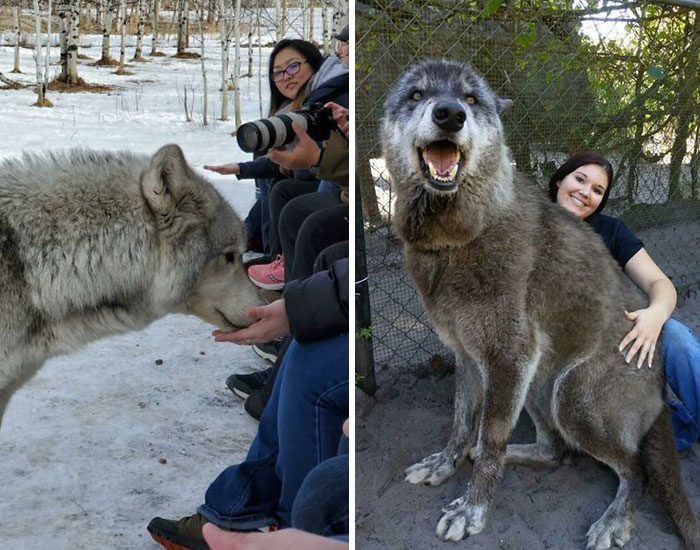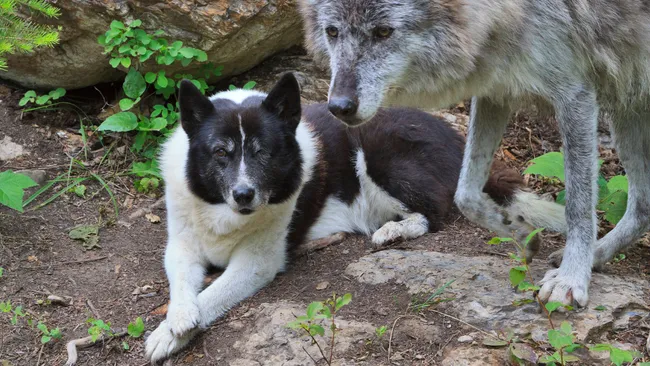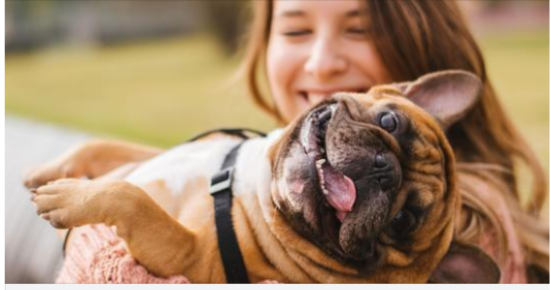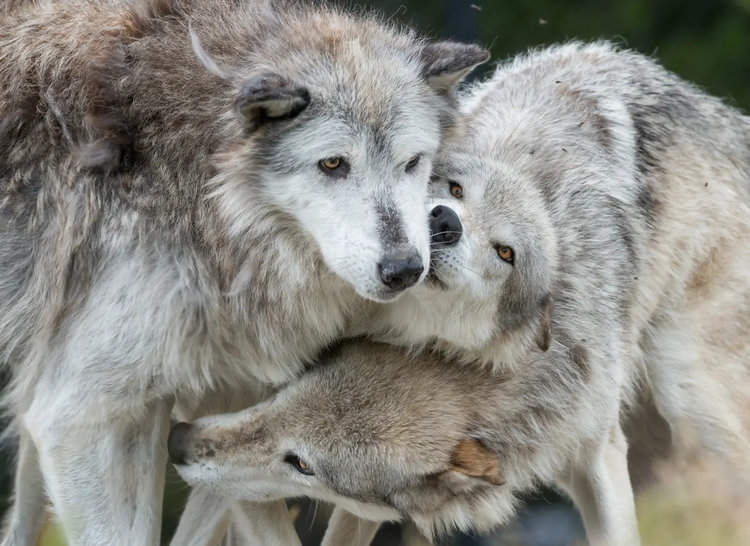10 Wolf-Like Dogs That Are Actually Just Big Floofs
It is common knowledge that dogs and wolves come from the same family and are very closely related. And while big dogs and wolves generally look a lot like each other, there are some wolf-like dogs that are very difficult to distinguish from real wolves. Most dog breeds that look like wolves are hybrids, meaning they are part dog, part wolf. The closer the wolf part is on their family line (for example, one of the parents was a wolf, as opposed to a great aunt a couple of generations in the past), the more the pup will look like a wolf too. This type of crossbreeding is mostly done for scientific purposes, though sometimes it can very well occur naturally.
If you are wondering which dogs look like wolves, check out Northern Inuit dogs. Remember the dire wolves from Game of Thrones? Yep, that’s the one. Others include the Swedish Vallhund, Belgian Tervuren, and more. Even more common Alaskan malamutes and Siberian huskies are considered wolf dogs.
Wolf dogs are regarded as pets even though they come with extra responsibility for their owners due to their sheer size and also because they have more acute prey instincts. But if you are thinking of acquiring a pet wolf, this might not be the best idea. Don’t forget that wolves are wild animals and, as such, need to live in nature. If you happen to have rescued a wolf (congrats!) and, for certain reasons, it can’t return to its natural habitat, consider handing the animal over to a sanctuary or other professionals who are equipped to handle wild animals.
Check out the photos of dogs that look like wolves that we collected for this article, and if you happen to know another gorgeous creature from this family, share their pics in the comments.
Loki The Wolfdog – Breakin’ Hearts Since 2012
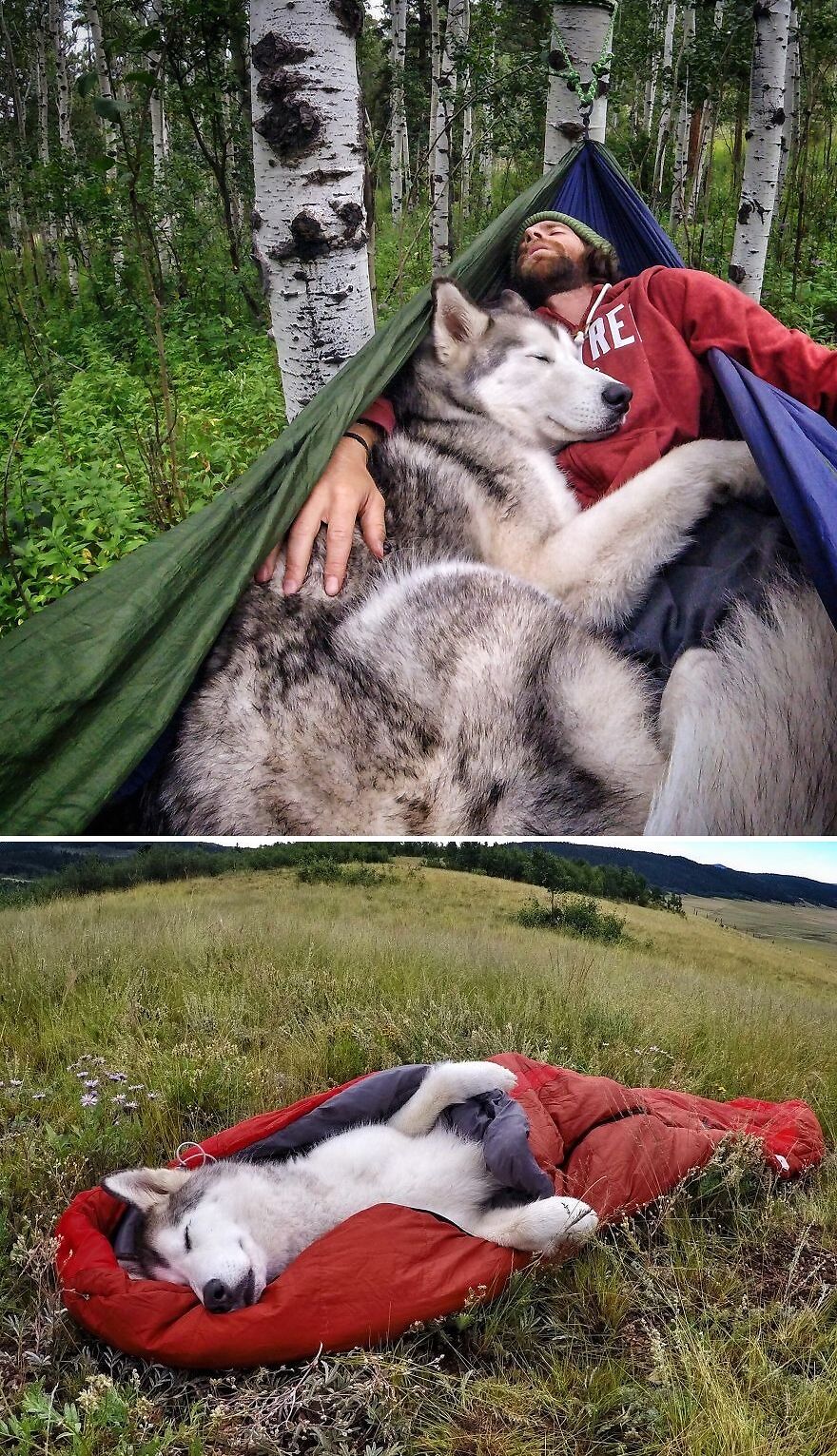
To talk a bit more about wolfdogs, meaning dogs that were born from a domestic dog and a wolf, Bored Panda reached out to Yamnuska Wolfdog Sanctuary, which was created in June 2011 in Cochrane, Alberta, Canada. As the Sanctuary introduces itself on its website, its purpose is “to drive public awareness and education surrounding wolfdogs and wolves in the wild.”
We talked with Alyx, the operations manager at the Sanctuary and she agreed that wolfdogs are not for everyone. Actually, she really wanted to stress it as she saw so many people get mesmerized by the dogs’ appearance just to give them up after not being able to handle them which led to the dogs being euthanized.
A Bad Dog Owner Dumped This Wolf-Dog At A Kill Shelter When He Got Too Big And Too Much To Handle. Luckily A Sanctuary Took Him Instead And Saved His Life!
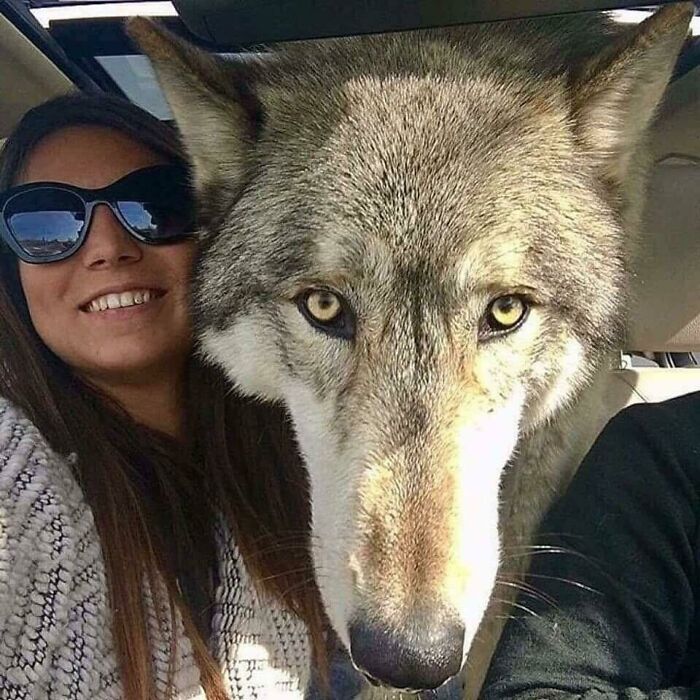
His DNA testing came back as 87.5 % Gray Wolf, 8.6 % Siberian Husky, and 3.9 % German Shepherd.
Wolf Pup
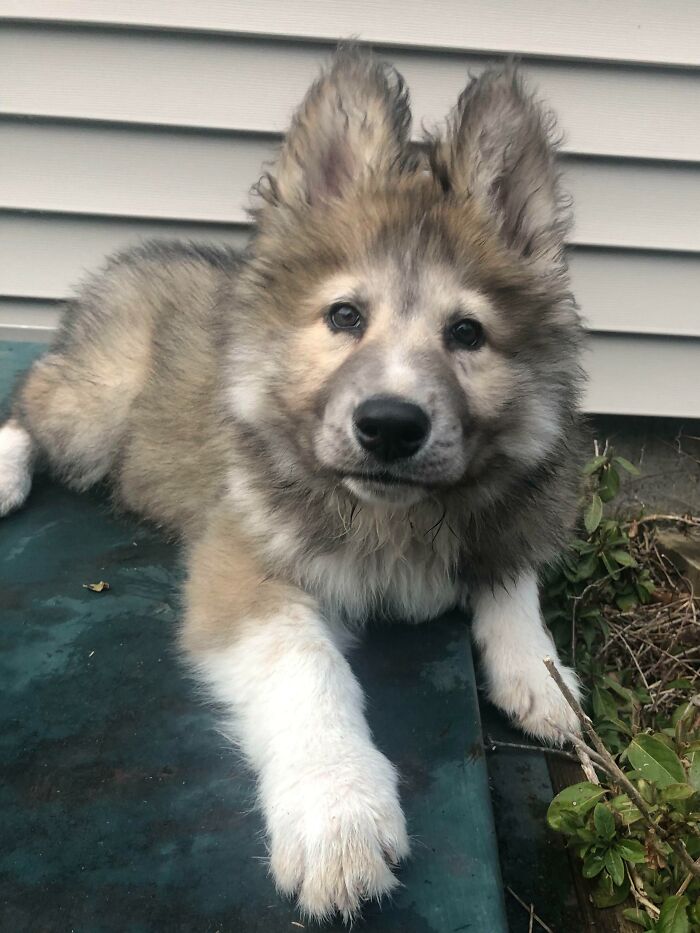
Alyx described some of the challenges that wolfdog owners usually face that they didn’t expect because they didn’t do their research, “A wolfdog’s challenges can be much more intense depending on how much wolf is present. That said, all wolfdogs tend to have a tendency to be more shy and timid and less human-oriented. They can be master escape artists, aloof, destructive indoors, and intense resource guarders just to list a few of their challenges.”
Even though these are some of the main issues that an owner may have to deal with, “There are many more to list though and each wolfdog has their own individual needs and set of challenges. With more wolf content in a wolfdog, these behaviours are generally much more intense and extreme.”
That is why Alyx doesn’t recommend a wolfdog for a pet, “Wolfdogs require very specific homes. They are not suited for most people. While there are certain people out there that have done their research and have a true understanding of wolfdogs and are therefore able to provide them with great homes, the majority of people that end up with a wolfdog are not able to adequately care for them.” Which, as mentioned, ends up with the animal being euthanized because there aren’t a lot of places where the wolfdog can go after an owner gets tired of it.
This Is The Photo That Made Me Say “I’m Gonna Drive 800 Miles To Rescue That Special Needs Pupper”
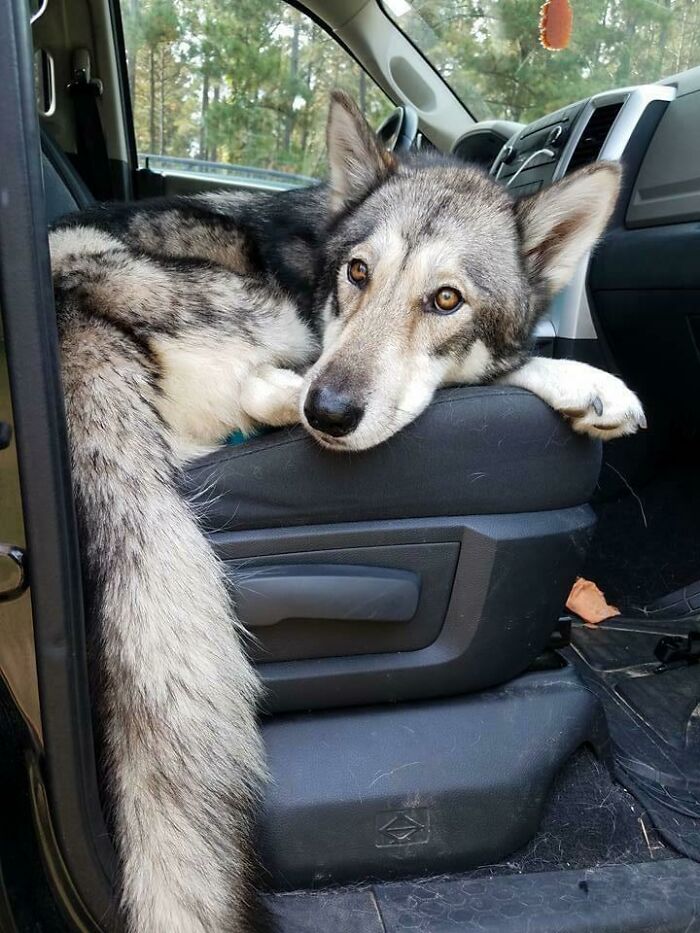
Looking Into The Distance
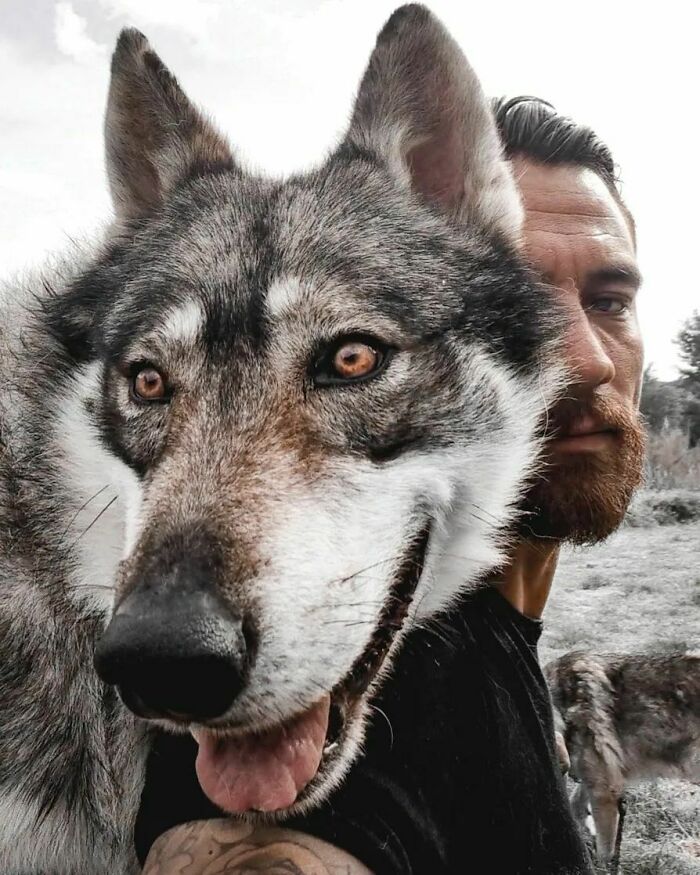
Sasha (The Czech Wolfdog) Loves Beach Zoomies
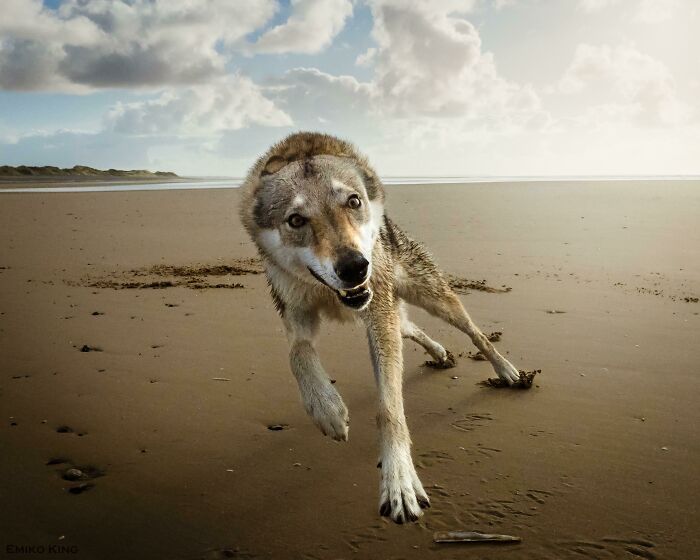
In Alyx’s opinion, regular dog owners should stick to dogs that don’t have wolf content in their DNA at all, “Wolfdogs are extremely complicated animals. Even wolfdogs with a fairly small amount of wolf content can be very challenging to own, especially for someone that does not understand their behaviour.”
If you really really want a wolfodg and believe you can take care of it, the Sanctuary worker suggests Wolfdog Awareness as a resource to look for information, “There you can read through many blog posts that deep dive into the challenging behaviours an owner may (and will likely) face when it comes to wolfdog ownership.”
My Wolfdog Boy, Faelen, Giving Cuddles To My Mom
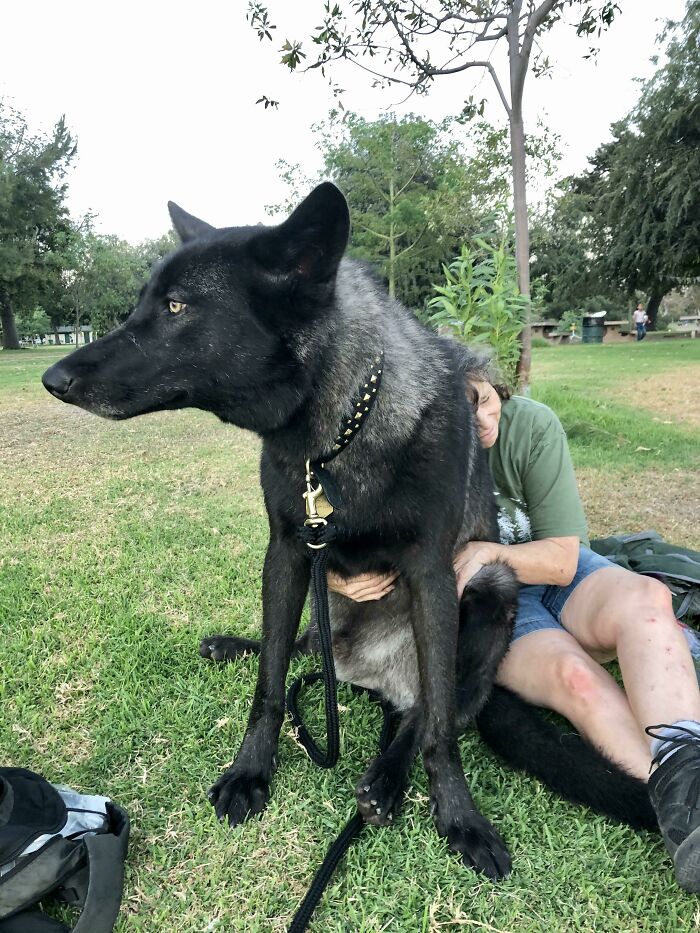
The Majestic Wolfdog
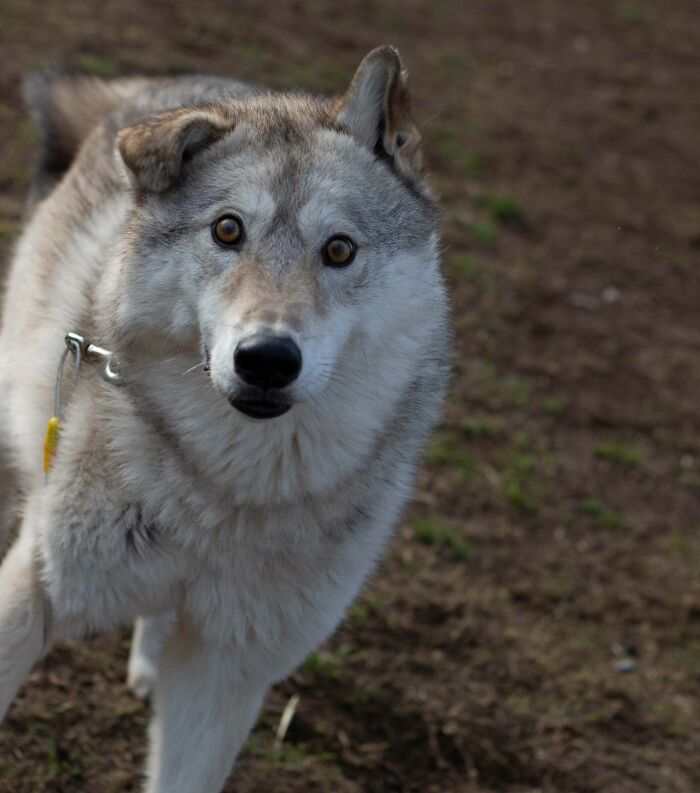
His Winter Coat Is Coming And He Is Getting More And More Beautiful

Black Wolf Hybrid
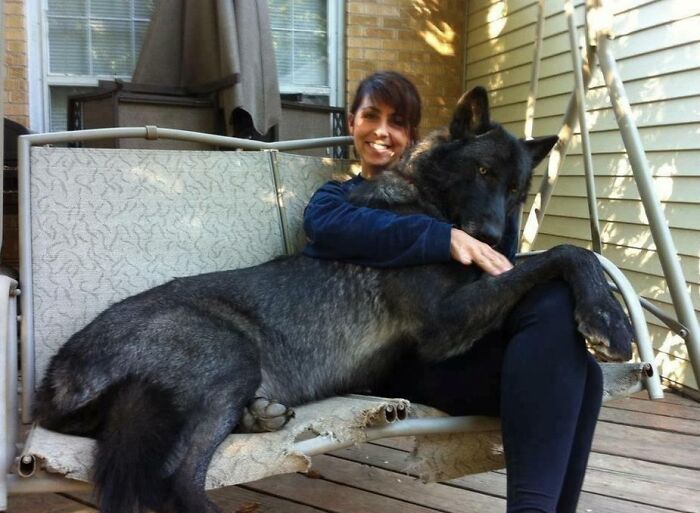
All of that being said, not all dogs that look like wolves have wolf content in their DNA. Of course, all dogs derived from wolves but as Alyx explained to us, “All domestic dog breeds like Huskies for example, are domestic dogs and do not have wolf content in them. Wolfdogs are the result of recent wolf heritage. Domestic dogs may have descended from wolves but this was thousands of years ago.”
As mentioned in the introduction, there are dog breeds that look like wolves but are just dogs and if you want a wolf-looking dog, you still have to do your research, “Though domestic dogs may just have a wolfy appearance and would likely be a better fit than a wolfdog, they can still be quite challenging. Northern breeds like a Husky or Malamute may be a good place to start, however, these can be very challenging breeds! You need to do thorough research on them before getting them.”
Getting to know a breed is extremely important because every dog breed has a different temperament, different care requirements, different tendencies for medical issues and training abilities, so you have to consider what would fit in your lifestyle. For those reasons Alyx strongly suggests not to choose a dog solely on their appearance.
